Imagine your dog’s skeleton silently adapting to everyday movement — every jump, sprint, or playful tug-of-war helping to sculpt stronger bones from the inside out.
But here’s the shocker: dogs that skip regular exercise or carry excess weight are far more prone to hidden bone-density drops that could lead to fractures or joint problems down the line.
That’s why picking a breed built for sustained activity isn’t just about energy — it’s about structural resilience, natural bone health, and longevity.
In this article, we’ll uncover ten of the healthiest dog breeds whose genetics, lifestyle, and build make them prime candidates for naturally strong and healthy bones.
Dog Breeds That Maintain Healthy Bones Naturally
1. Belgian Malinois
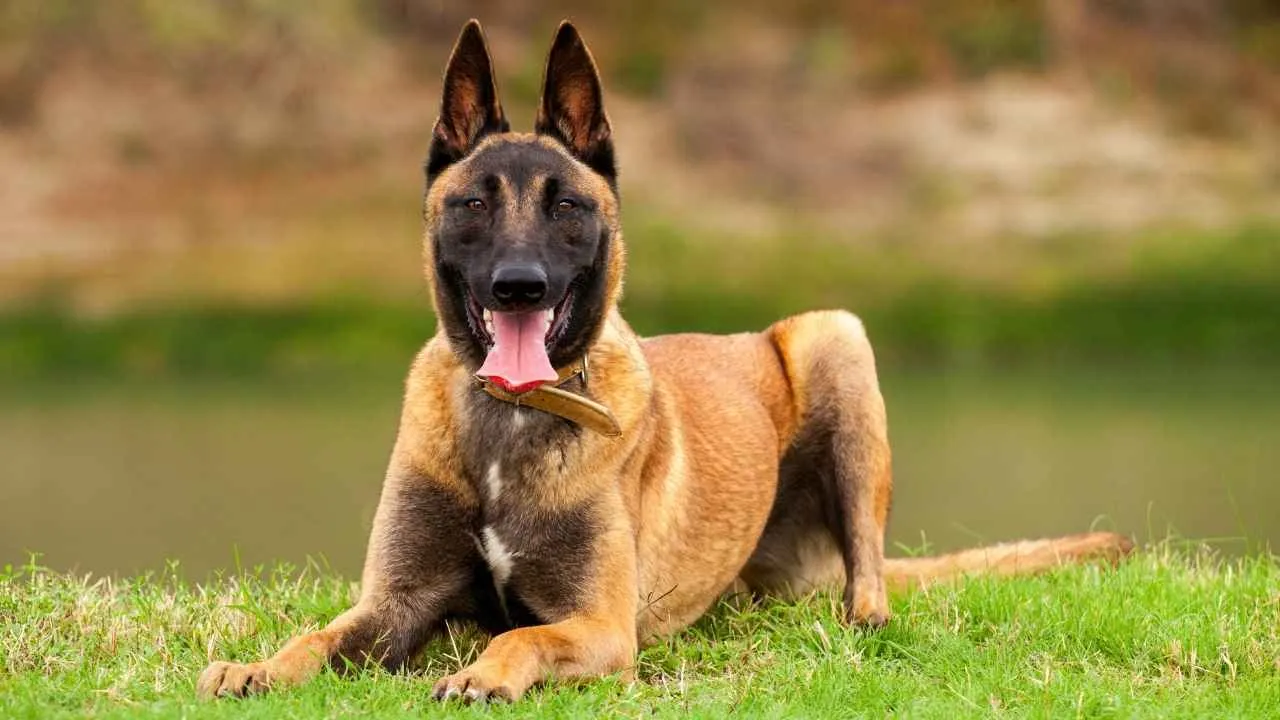
This breed earns its spot because its natural build—lean yet muscular—makes it a powerhouse for maintaining structurally strong bones over a lifetime.
Its high-octane activity level (think tracking, agility drills, long runs) means this dog doesn’t just flex bones, it works them, which supports skeletal health and resilience.
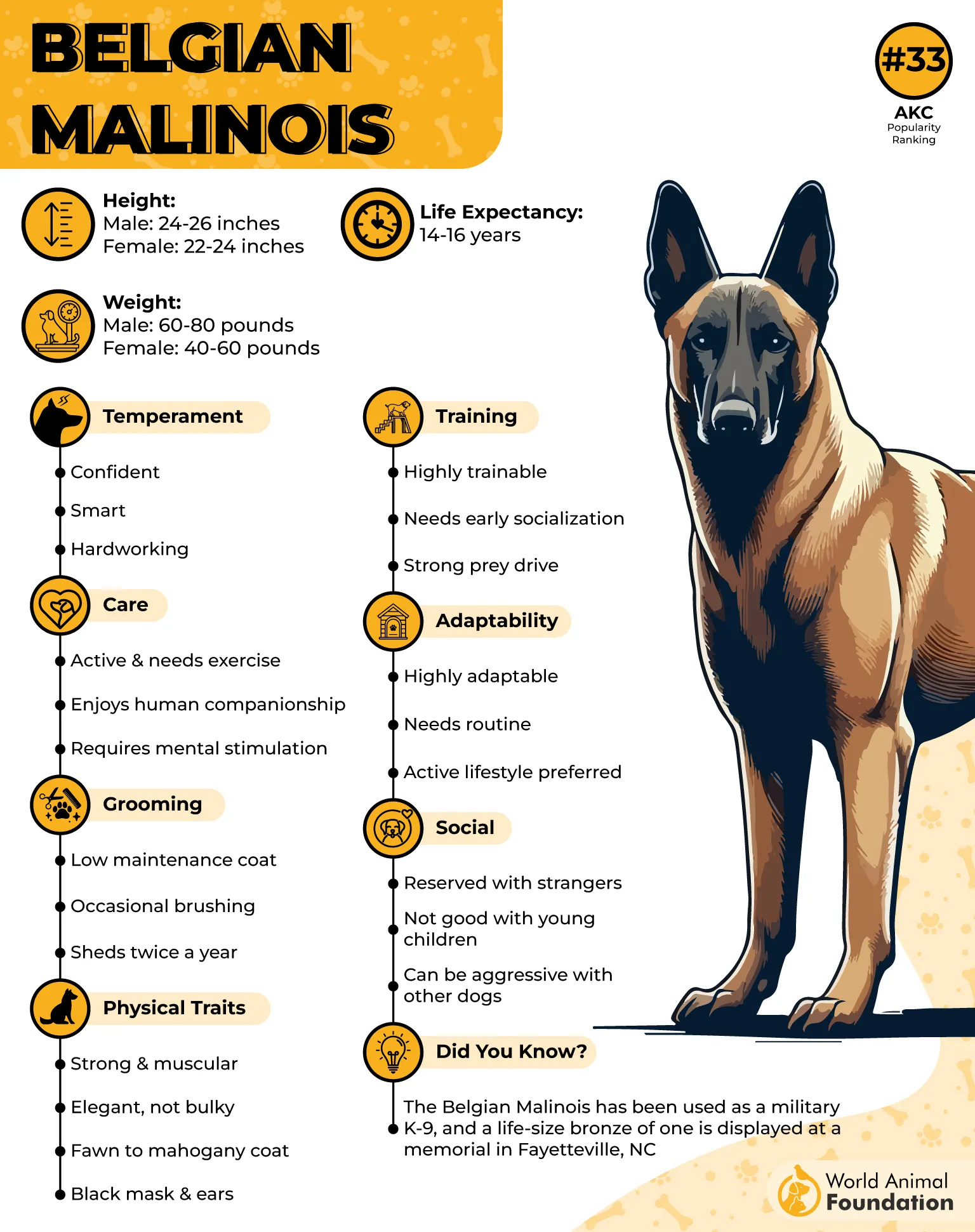
Dietary Needs for Bone Support:
High-quality protein to maintain muscle that supports bones
Balanced calcium and phosphorus levels are appropriate for energetic large breeds
Omega-3 fatty acids to reduce inflammation around joints
Dog Bone Health Watchpoints:
Hip dysplasia risk must be monitored early
Elbow dysplasia and joint stress from intense work
In a nutshell: the Belgian Malinois is a robust, agile herding/working dog from Belgium with a strong, well-boned frame and genetics bred for endurance, speed, and alertness.
2. Belgian Sheepdog
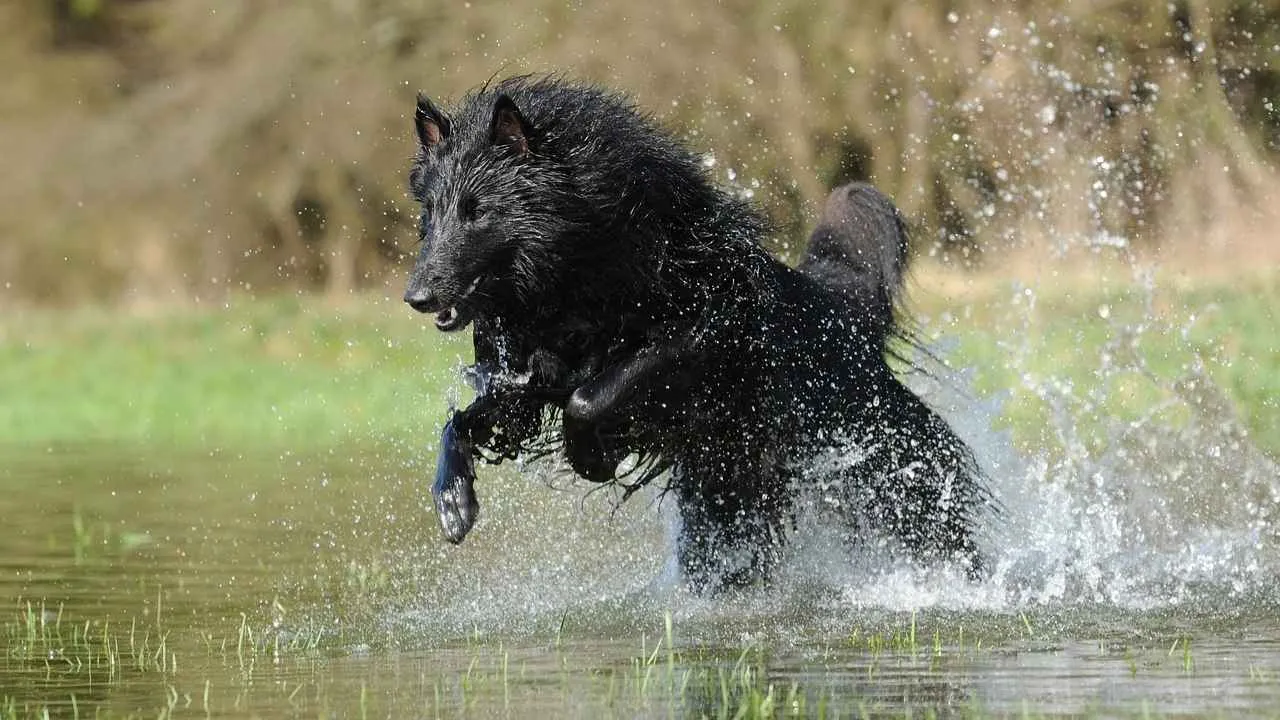
This elegant yet athletic breed makes the list because its heritage as a hard-working herder endowed it with a naturally sturdy skeletal structure and endurance-built frame.
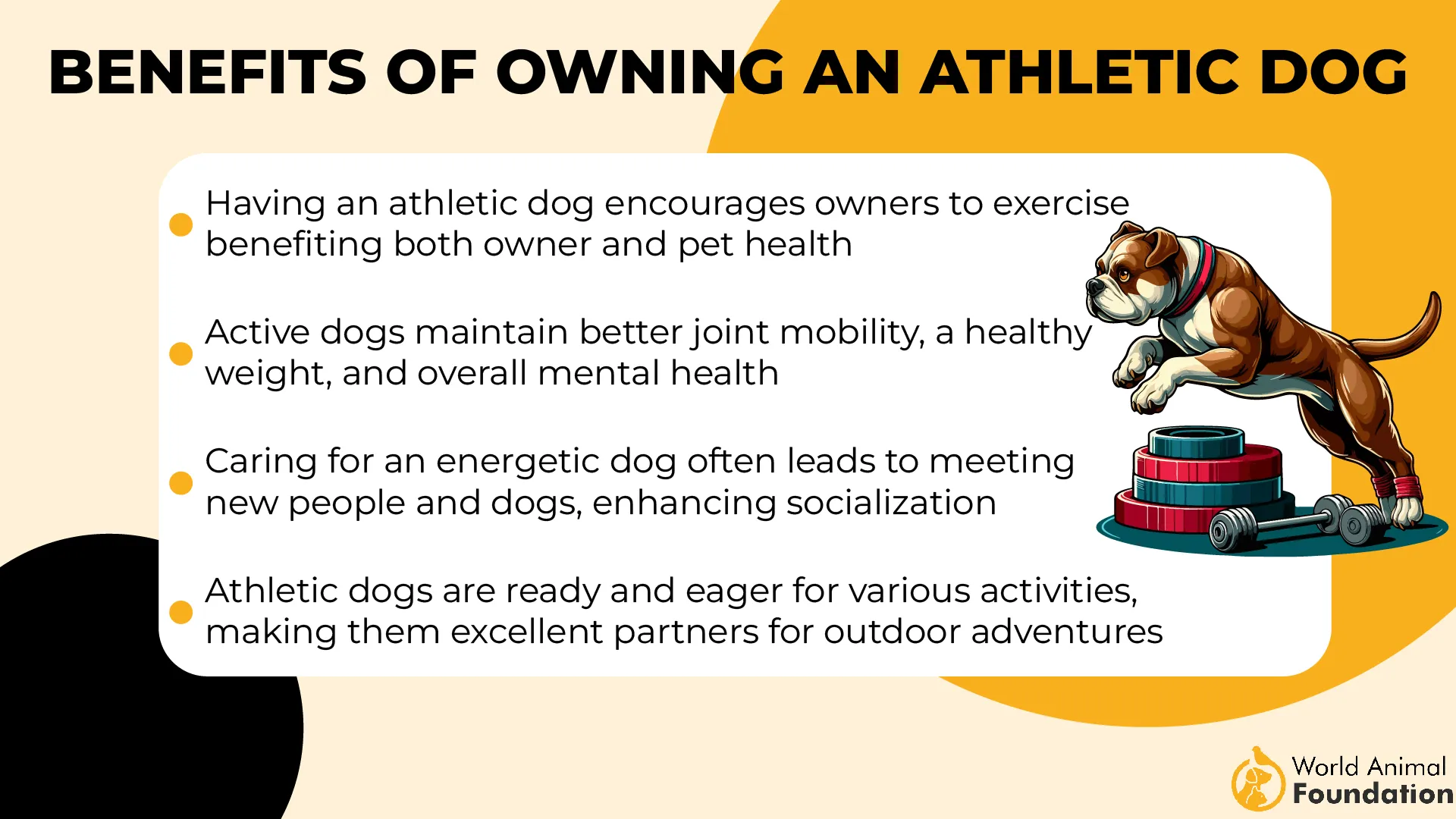
With a daily regime of trotting, bounding, and mental work, the Belgian Sheepdog keeps its bone health top-tier thanks to constant movement and muscular support.
Dietary Needs for Bone Support:
Nutrient-rich diet with minerals for bone density
Regular feeding schedule suited to high-energy dogs
Supplements (only if vet-suggested) for joint and bone health
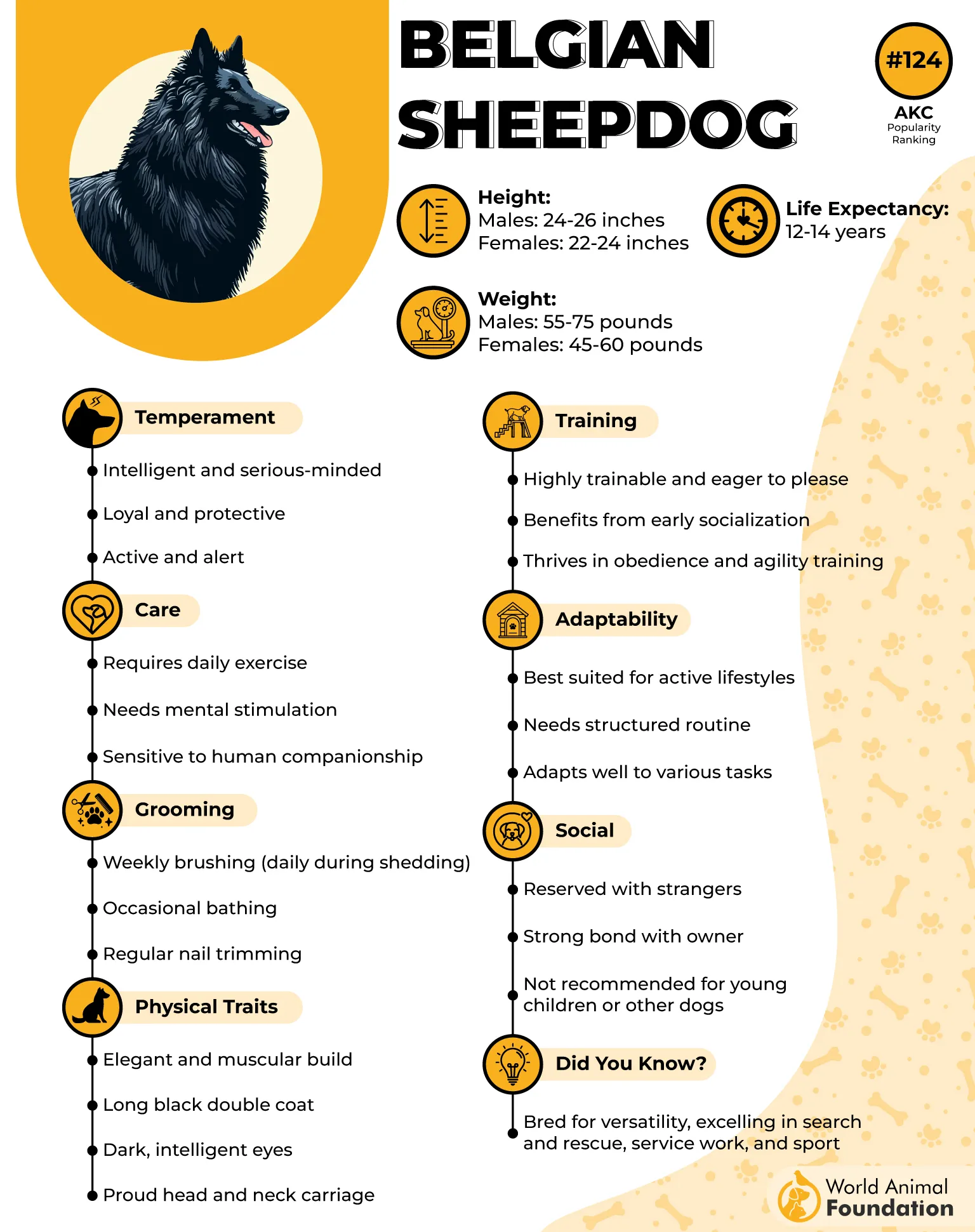
Dog Bone Health Watchpoints:
Hip and elbow dysplasia screenings are recommended
Joint wear from high-energy activity without proper rest
Snapshot time: AKC notes that the Belgian Sheepdog (also called Groenendael in its long-coat version) is a Belgium-bred herding breed known for its intelligence, sleek black coat, and commanding yet agile build.
3. Belgian Tervuren
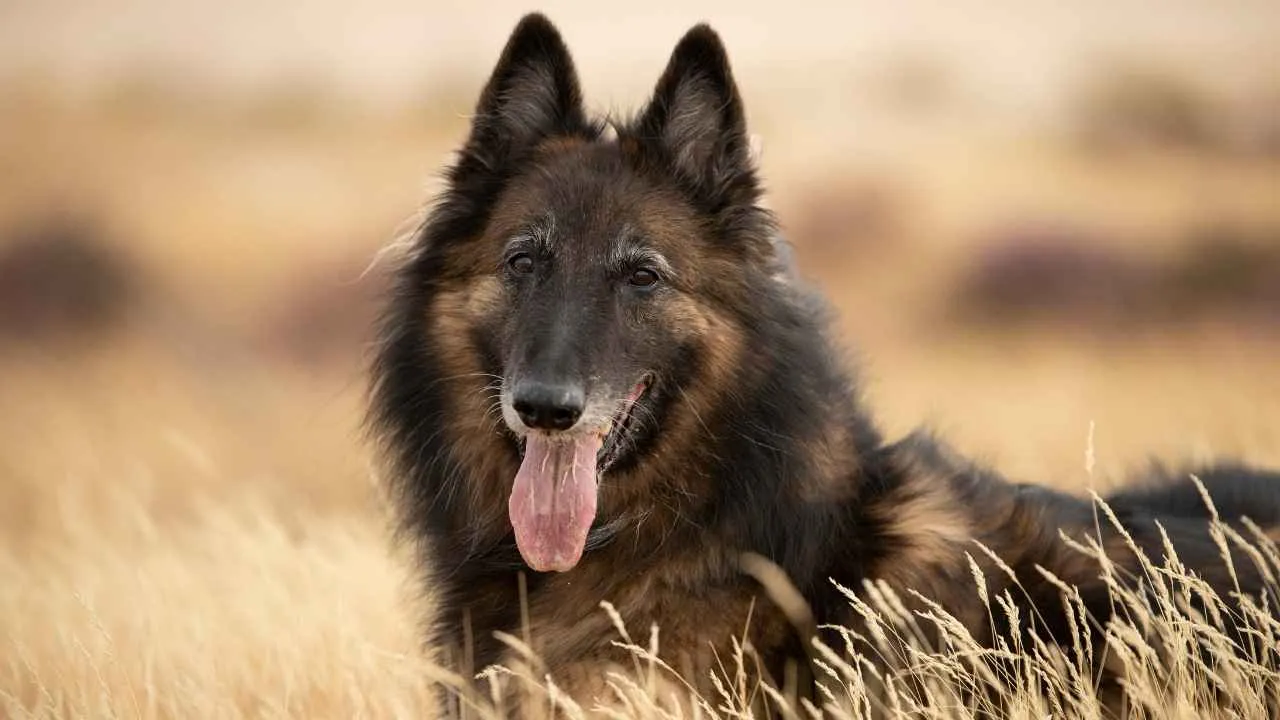
Why this breed? Its combination of agility, stamina, and purposeful build means its bones aren’t just present—they’re primed, reveals PetMD.
When you’re hiking off-trail or engaging in herding or advanced training, the Tervuren’s skeletal system and musculature are constantly reinforcing one another.
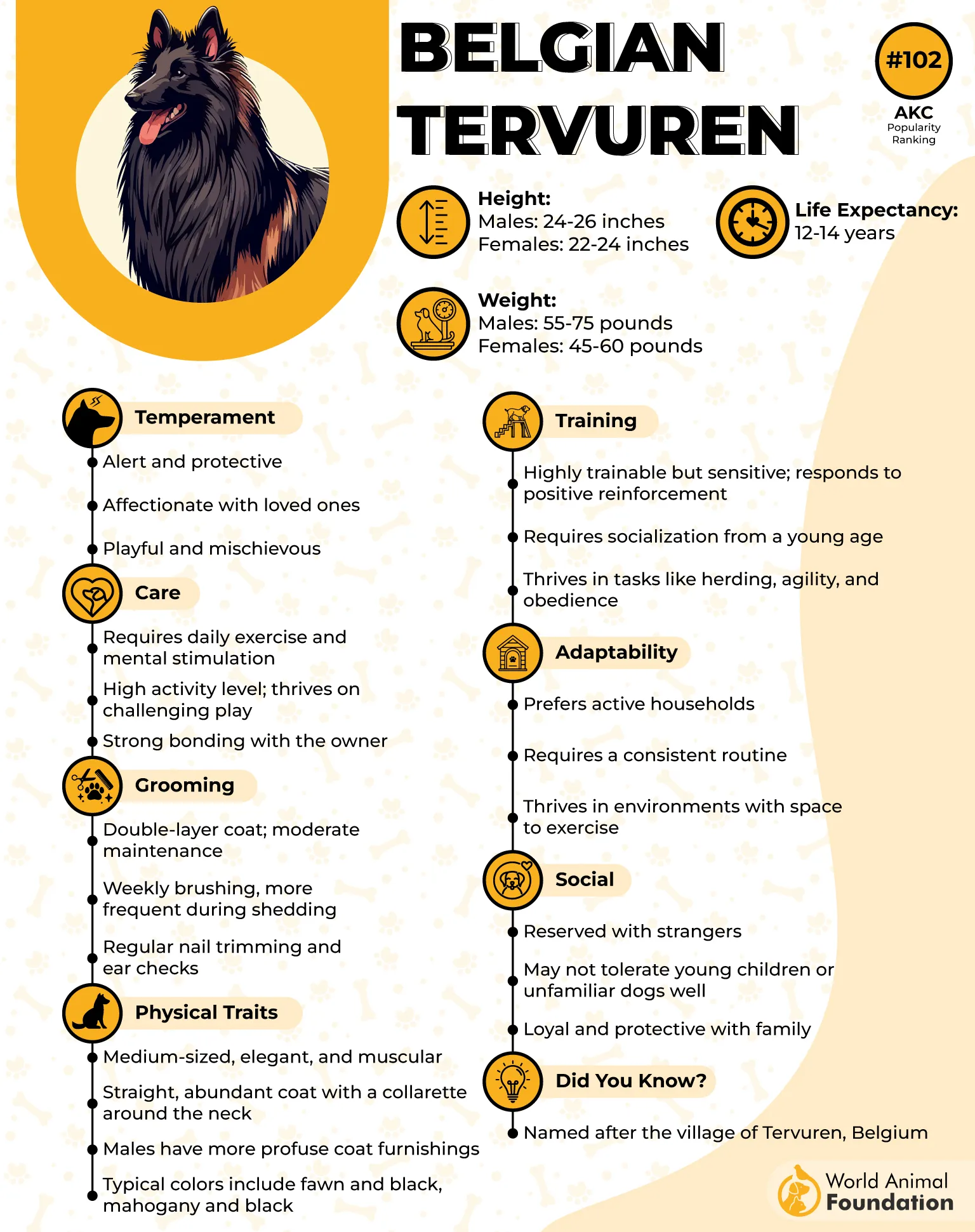
Dietary Needs for Bone Support:
Endurance-supporting protein with vitamins D and K for bone mineralisation
Proper caloric intake to avoid weight gain, which stresses bones
Joint-friendly nutrients to retain flexibility
Dog Bone Health Watchpoints:
Requires consistent muscle conditioning to avoid skeletal strain
Needs a truly active lifestyle or risk of underused bones losing strength
And the snapshot: The Belgian Tervuren is one of the four Belgian Shepherd varieties: agile, intelligent, and built for work. Medium-large size, alert expression, and a body engineered for movement.
4. German Shorthaired Pointer
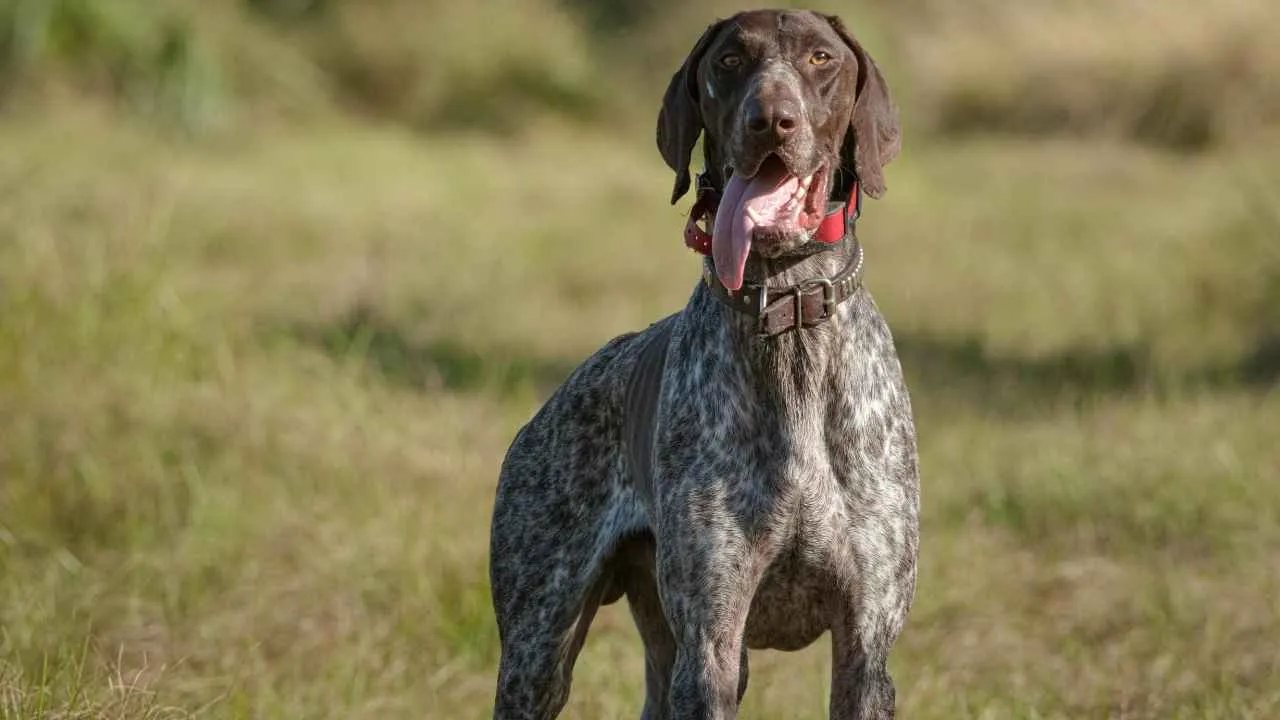
This breed’s selection for versatility means its bones are conditioned to both land and water tasks—making for a naturally well-rounded skeletal system.
Every time this dog deploys endurance running, swimming, or pointing in the field, it reinforces bone health by combining bone stress with muscular conditioning.
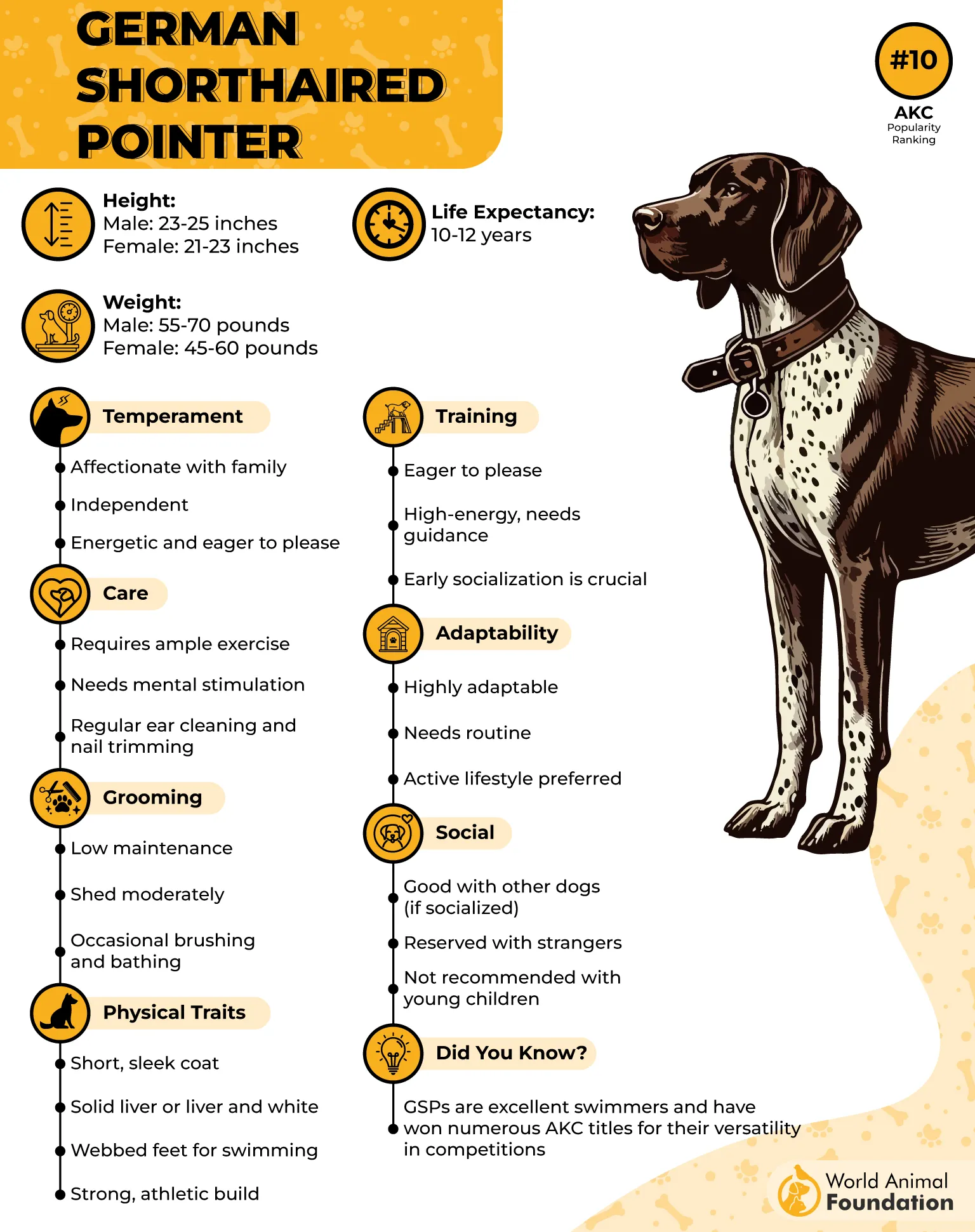
Dietary Needs for Bone Support:
Lean muscle-building nutrition to support bone anchors
Trace minerals such as magnesium, zinc for bone metabolism
A balanced diet to prevent rapid weight gain, which burdens joints
Dog Bone Health Watchpoints:
Because this breed runs hard, watch for knee and hip stress from high impact
Ensure rest days so bones can recover from intense activity
Snapshot: The German Shorthaired Pointer is a German-bred all-purpose gun dog: medium size, athletic build, and bred for stamina and function in diverse terrain.
5. Australian Shepherd
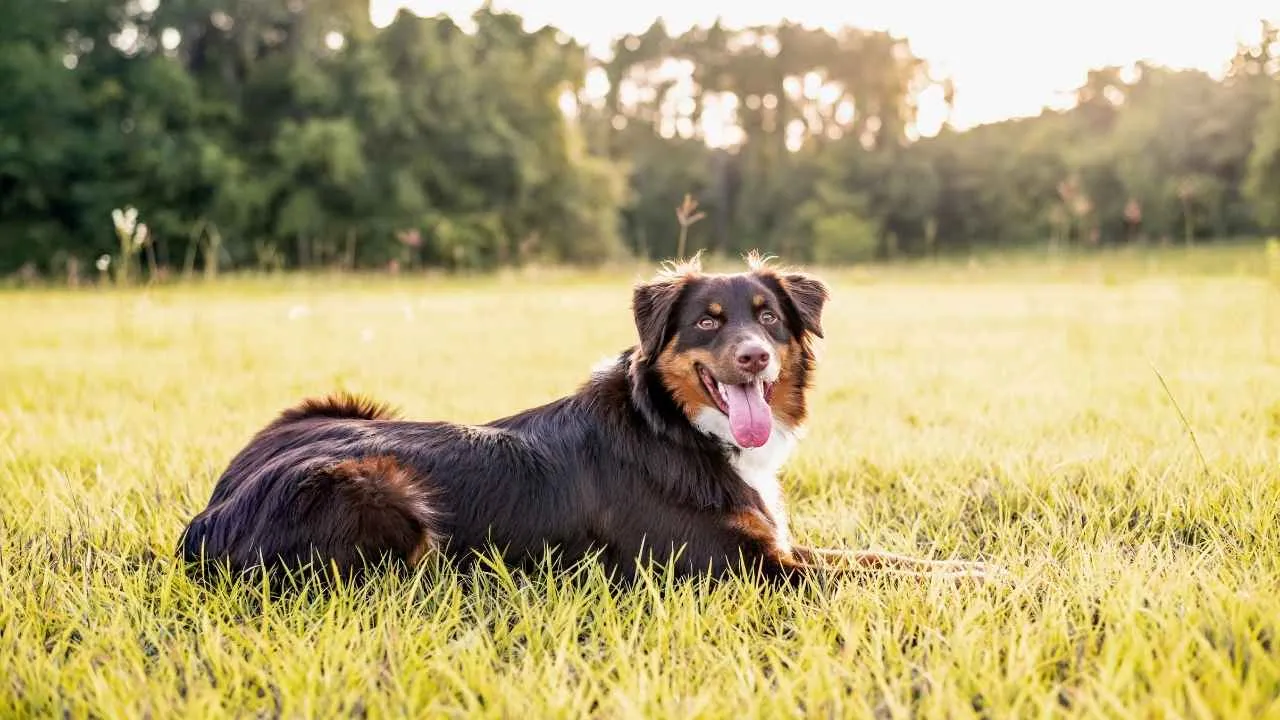
The Aussie earns its place because its herding-dog heritage means a compact, agile build and naturally healthy bone structure geared for movement.
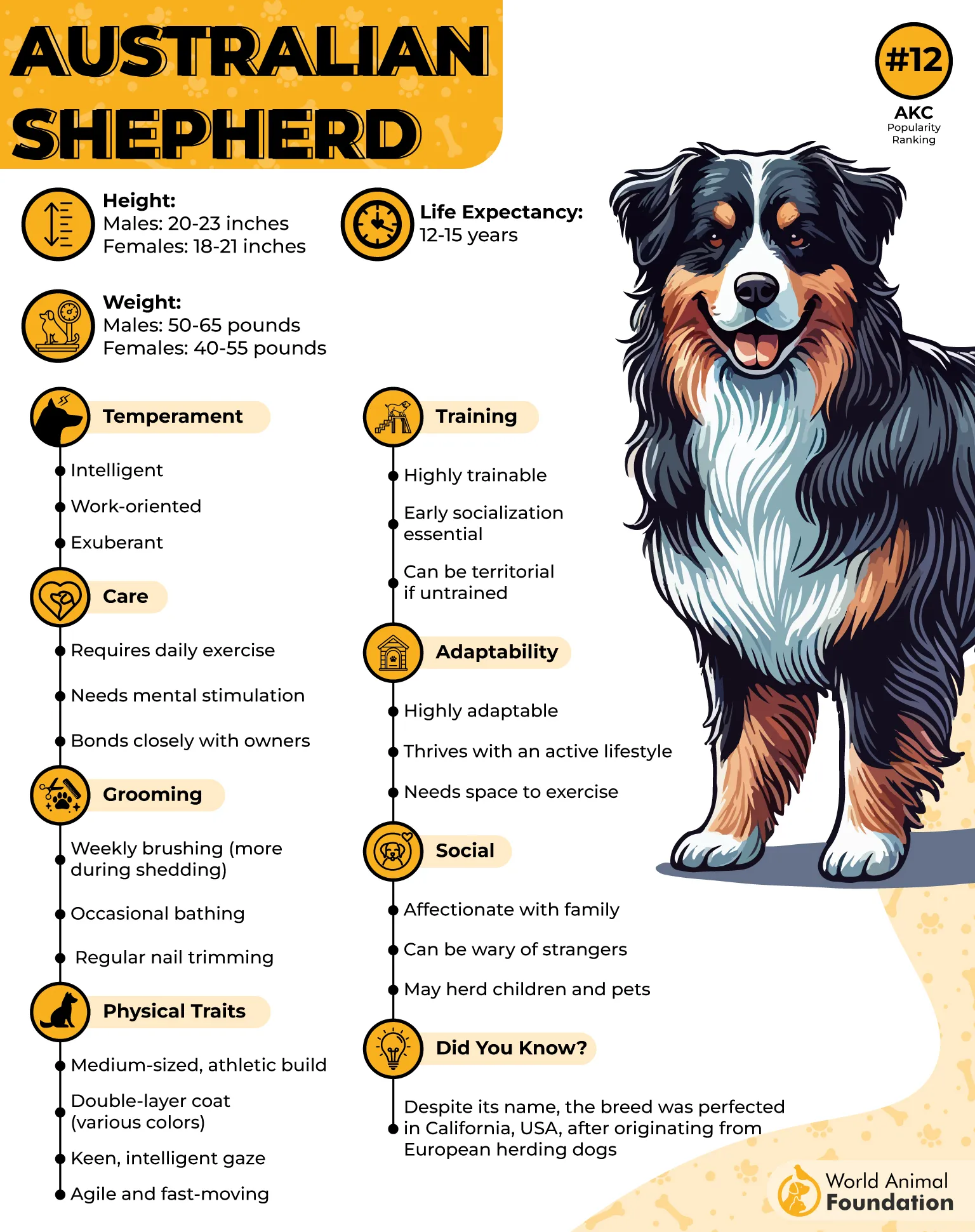
From running livestock to exercising with family, its bones stay engaged—active lifestyles equal stronger bones.
Dietary Needs for Bone Support:
Balanced working-breed formula with proper calcium/phosphorus ratio
Joint-supporting fatty acids and antioxidants for bone integrity
Calorie control, especially as activity levels change
Dog Bone Health Watchpoints:
Prone to hip & elbow dysplasia if bones aren’t stressed properly and weight is unmanaged
Avoid too much repetitive high-impact from a young age before bone maturity
Snapshot: The Australian Shepherd is a medium-sized herding dog, built for agility and endurance, with a strong frame, vibrant energy, and the genetic toolkit for good skeletal health when properly exercised.
6. Border Collie
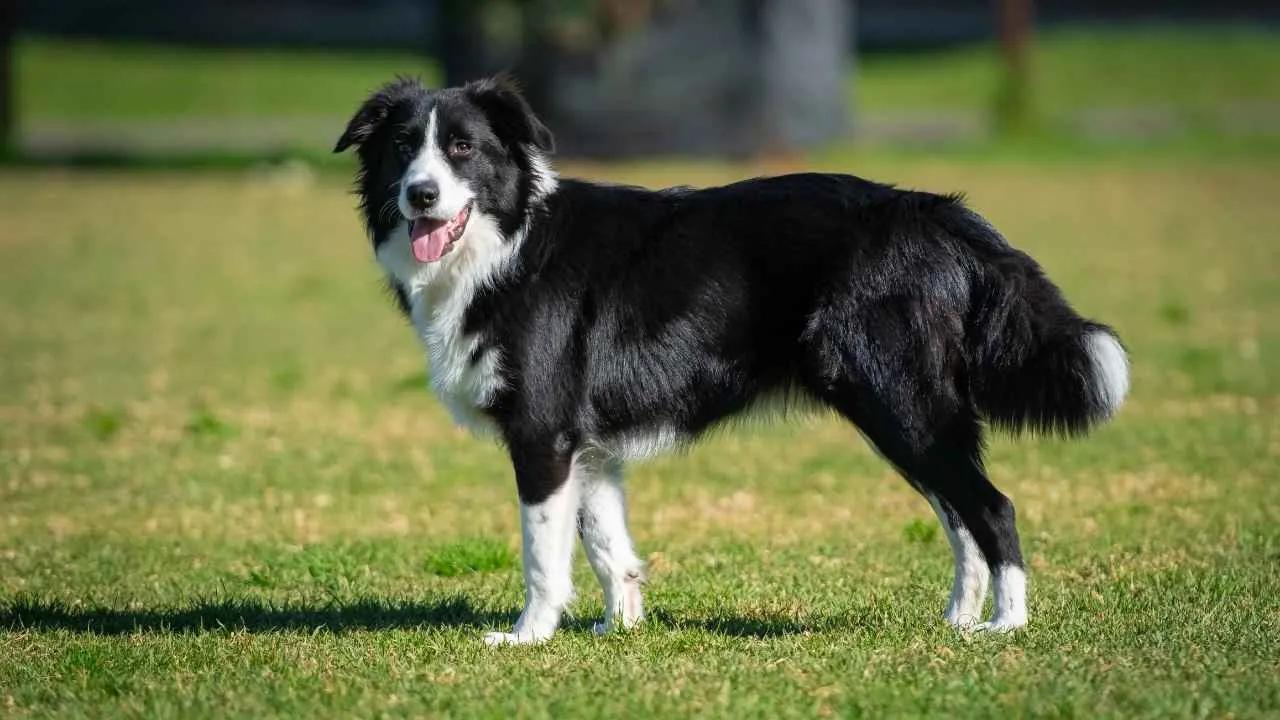
The Border Collie made this list for a simple reason—it never stops moving. Its intense work ethic, boundless energy, and razor-sharp intelligence mean its bones are always in motion, constantly strengthening through natural activity. This breed practically invented “active living,” making bone health a byproduct of its lifestyle.
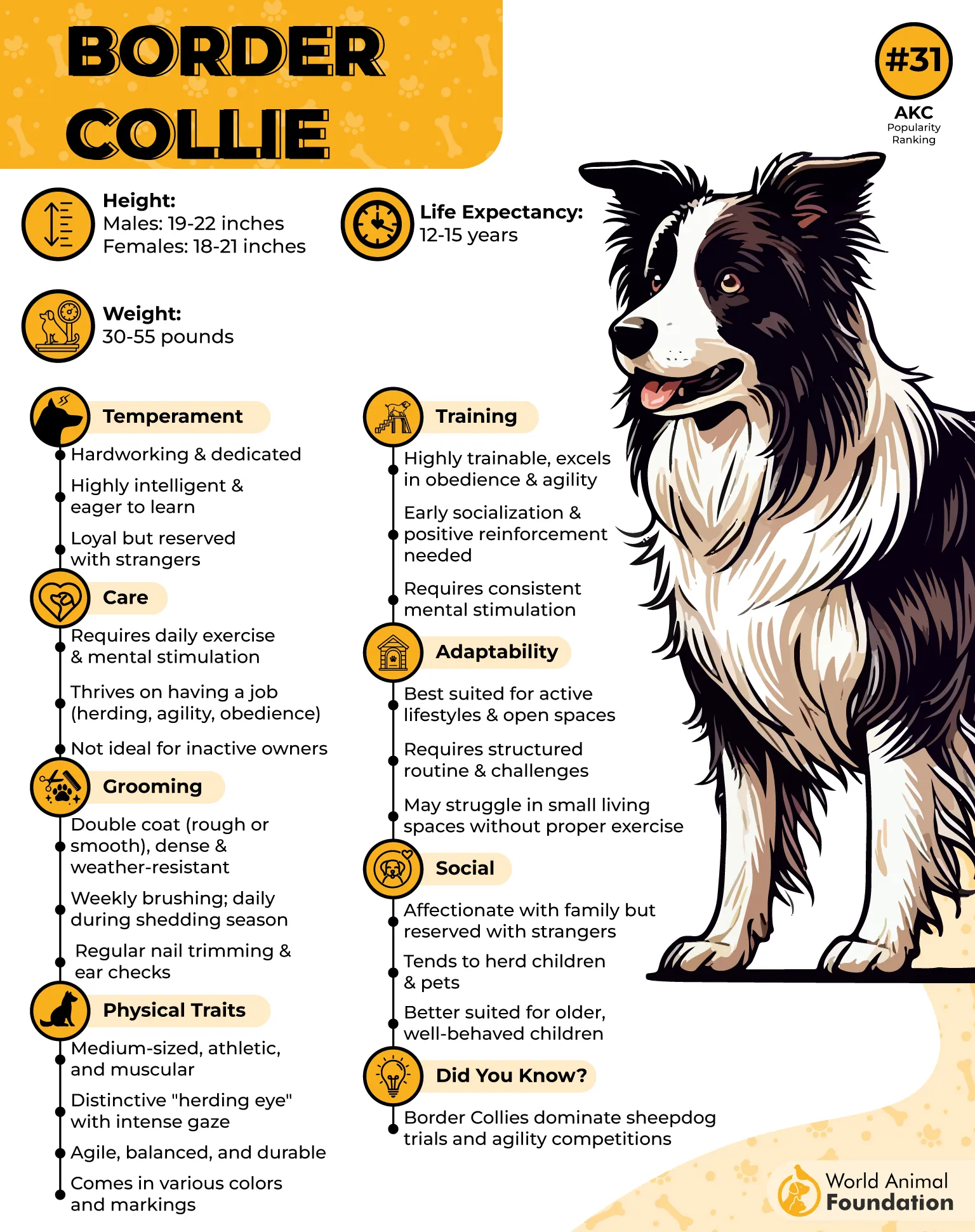
When it’s racing across fields or mastering agility courses, every jump and turn fortifies its frame. Regular herding work or even a frisbee session keeps bone density high and joints nimble.
Dietary Needs for Bone Support:
High-protein diet for muscle and skeletal support
Balanced calcium and phosphorus intake
Antioxidant-rich foods to support joint tissue
Dog Bone Health Watchpoints:
Hip and shoulder strain from repetitive motions
Requires recovery days after high-impact exercise
The Border Collie’s genetic makeup combines endurance with intelligence—creating a lean, strong-boned athlete that thrives on both movement and mental challenge.
7. Rhodesian Ridgeback
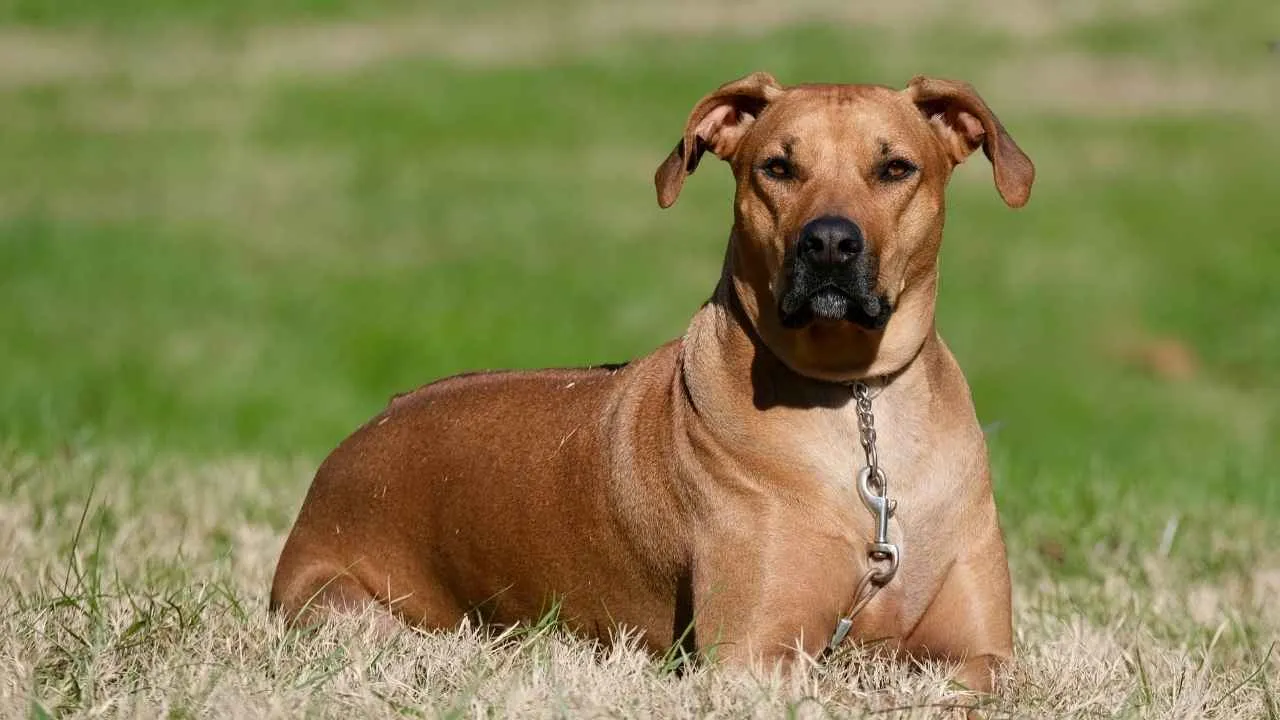
This regal athlete from Africa earned its rank with sheer power and structure. Originally bred to withstand heat and hunt over vast distances, its naturally strong, muscular bones carry both grace and might. The Ridgeback’s build is proof that endurance breeds resilience right down to the skeleton.
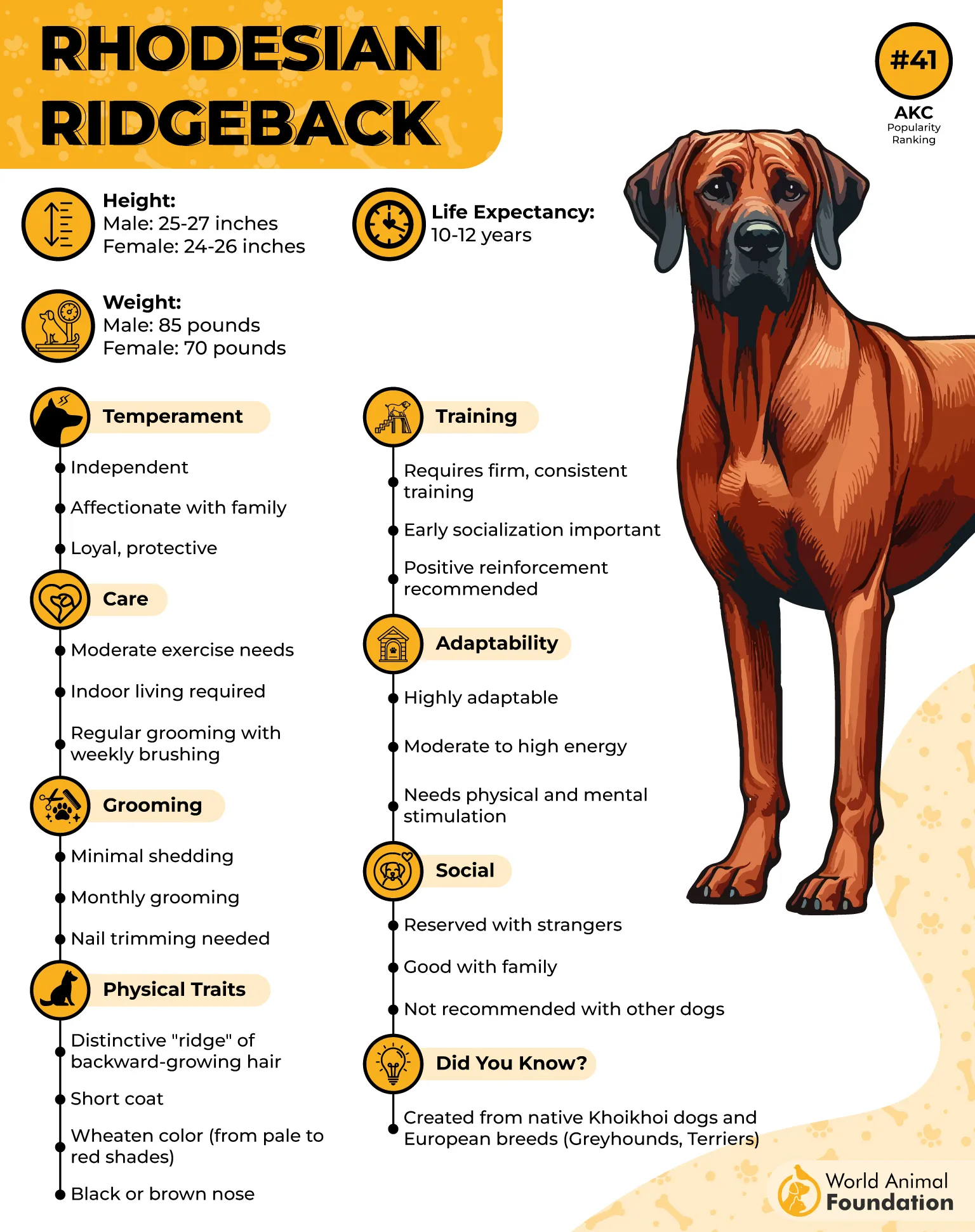
Its steady, rhythmic gait makes every step a natural workout for bones and tendons. Long runs and open-space adventures are ideal for maintaining this breed’s trademark strength and vitality.
Dietary Needs for Bone Support:
Moderate fat, lean protein for weight control and muscle strength
Vitamin D and minerals to aid bone density
Glucosamine-rich diet to keep joints cushioned
Dog Bone Health Watchpoints:
Monitor for hip or elbow issues with early screenings
Over-exercising young Ridgebacks before bone maturity can strain joints
Its genetics favor a balanced, athletic frame built for stamina. This dog’s powerful structure is a reminder that proper movement is nature’s best bone therapy.
8. Flat-Coated Retriever
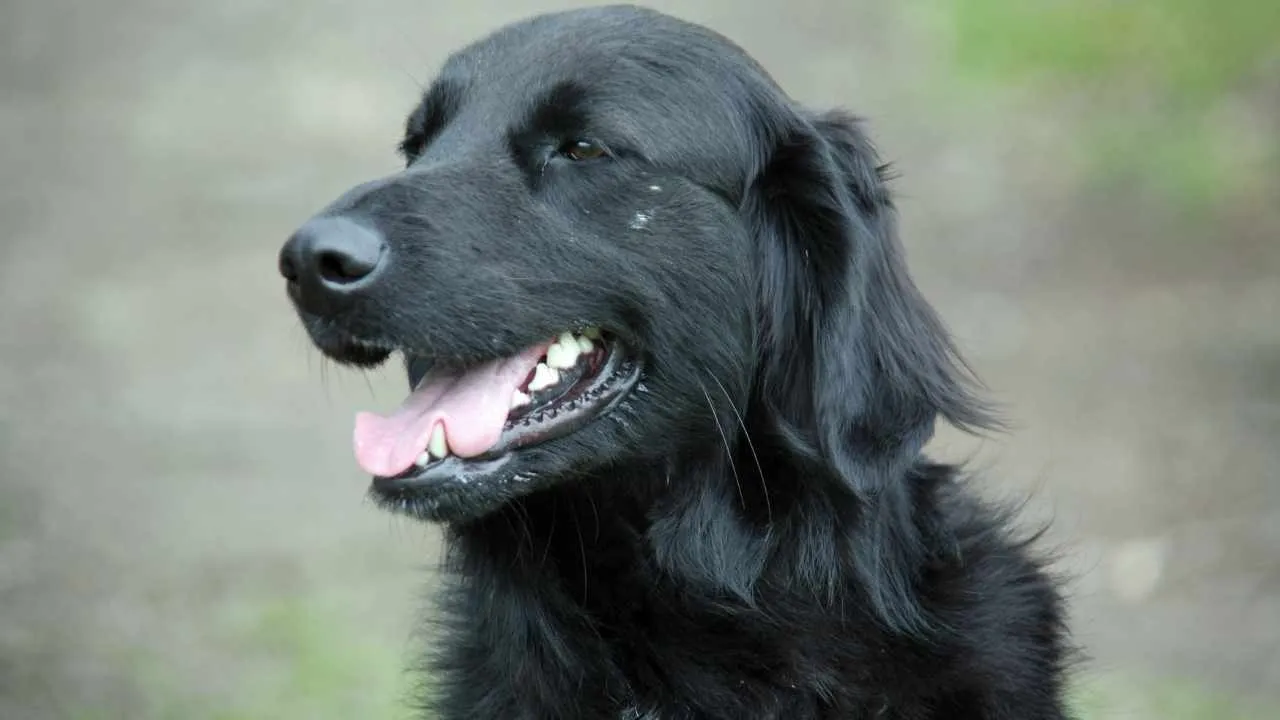
If there were an award for “forever youthful,” the Flat-Coated Retriever would win hands down. Its cheerful, energetic spirit fuels constant activity, which in turn keeps its bones strong and agile well into adulthood. This breed thrives on the go, and its skeletal health benefits every time it wags that tail in motion.
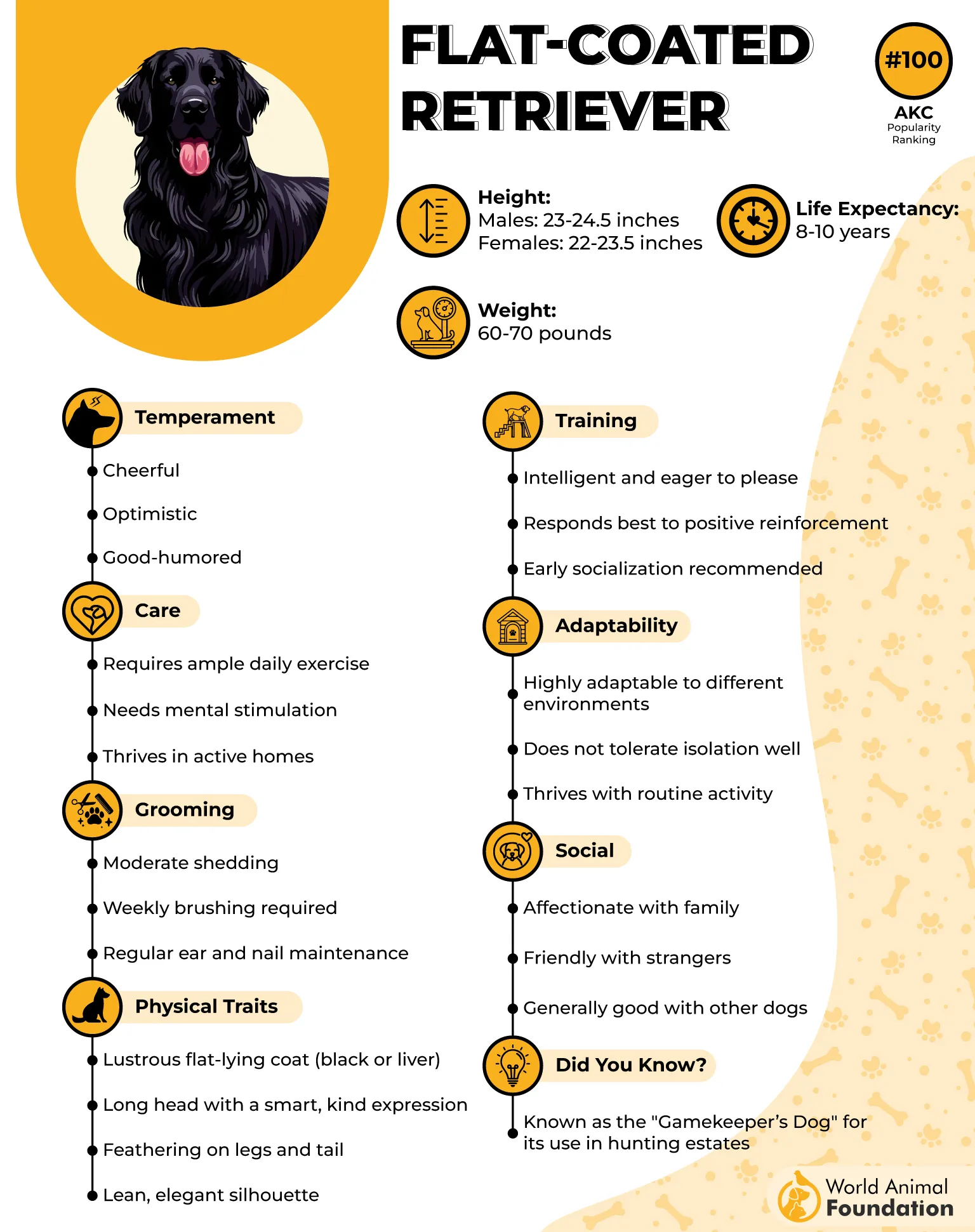
Purina explains that its favorite pastimes—retrieving, swimming, and romping—make bone conditioning feel like playtime. Natural buoyancy from swimming also helps balance muscle tone and joint flexibility.
Dietary Needs for Bone Support:
Fish-based proteins and Omega-3s for strong, supple joints
Adequate calcium for skeletal growth and maintenance
Controlled feeding to avoid unnecessary weight gain
Dog Bone Health Watchpoints:
Occasional risk of hip dysplasia in large retrievers
Requires low-impact exercise during growth stages
With a well-balanced frame and happy-go-lucky nature, the Flat-Coated Retriever remains an ideal example of how positivity and play keep bones young and healthy.
9. Bearded Collie
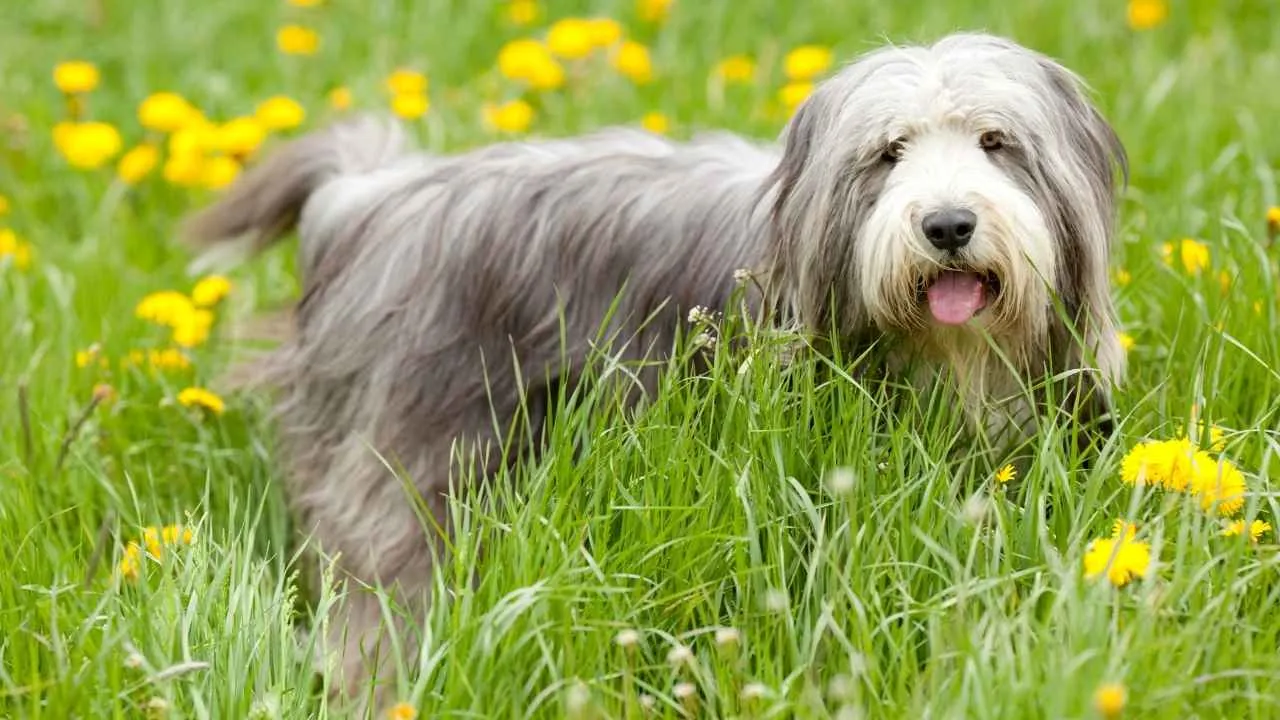
Think of the Bearded Collie as the free-spirited athlete of the herding world. Its bouncy stride and lively nature make it naturally gifted in keeping bones sturdy through joyful motion. This breed doesn’t just move—it glides with purpose and poise that promotes lasting skeletal strength.
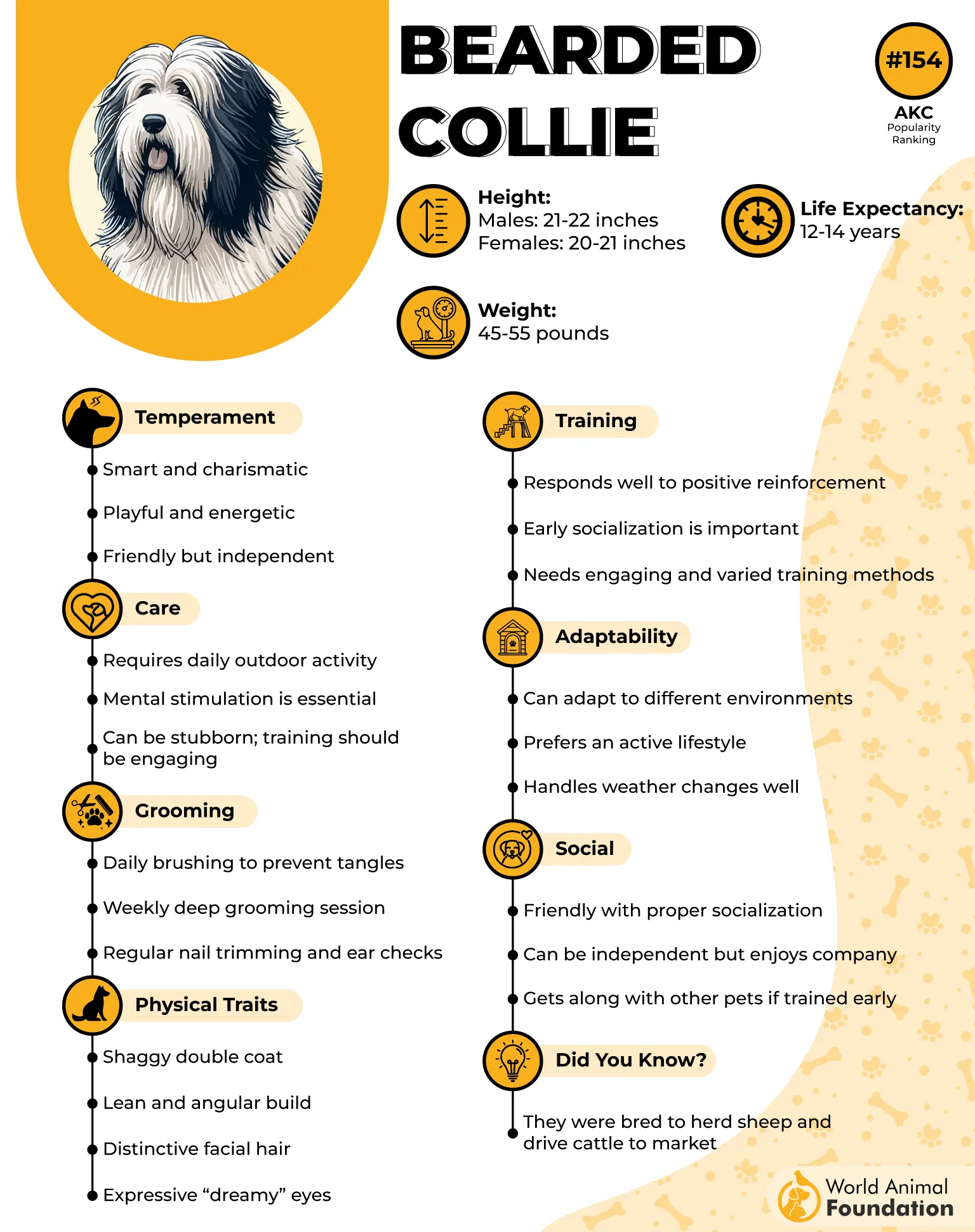
Outdoor adventures, long walks, and herding tasks keep every limb working in harmony. The Bearded Collie’s agility ensures its bones stay well-lubricated and resilient from consistent use.
Dietary Needs for Bone Support:
High-protein, balanced meals for sustained activity
Essential fatty acids for joint and bone integrity
Natural sources of calcium for bone reinforcement
Dog Bone Health Watchpoints:
Watch for joint stiffness in older dogs due to high energy levels
Regular vet checkups for early hip health monitoring
Its genes reflect centuries of working in rugged terrain, giving it the perfect mix of elegance, agility, and enduring bone strength that stands the test of time.
10. Shetland Sheepdog
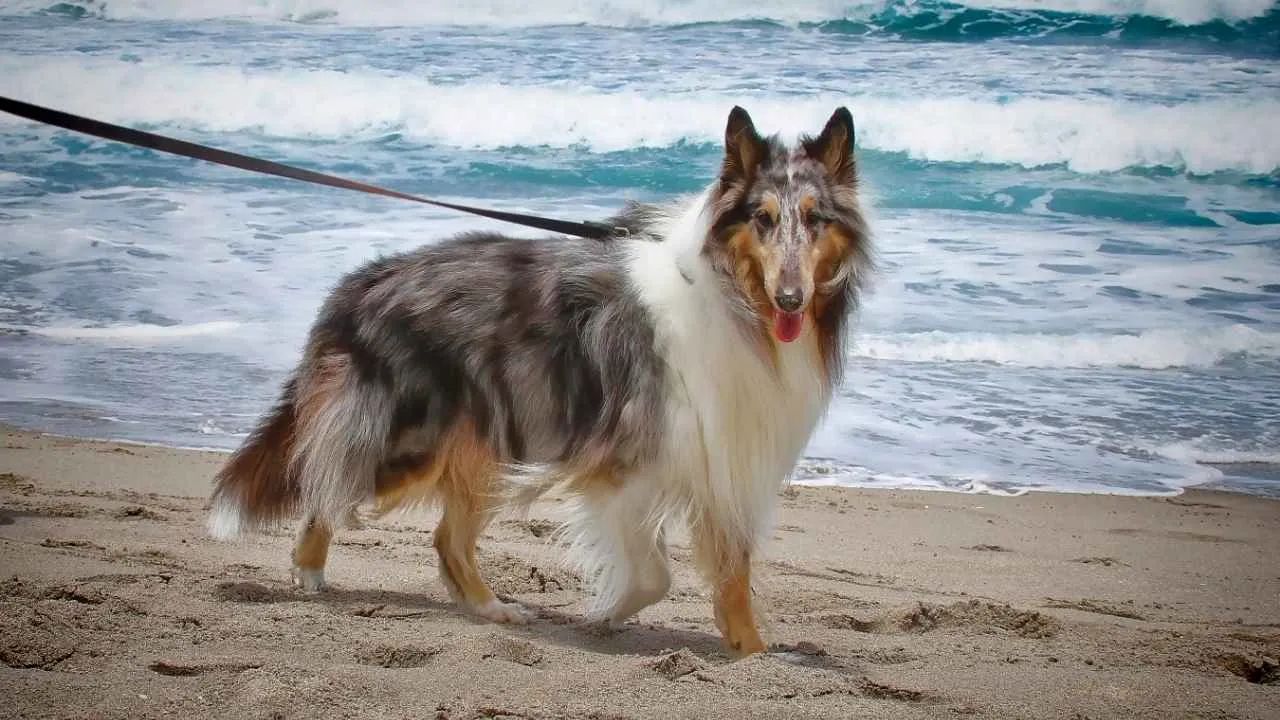
The Sheltie is small but mighty—compact bones wrapped in agility and intelligence. Its nimble frame was built to dart, jump, and herd tirelessly, ensuring its skeletal system stays robust from daily exercise and alertness. It’s proof that strong bones don’t always require size—just movement and balance.
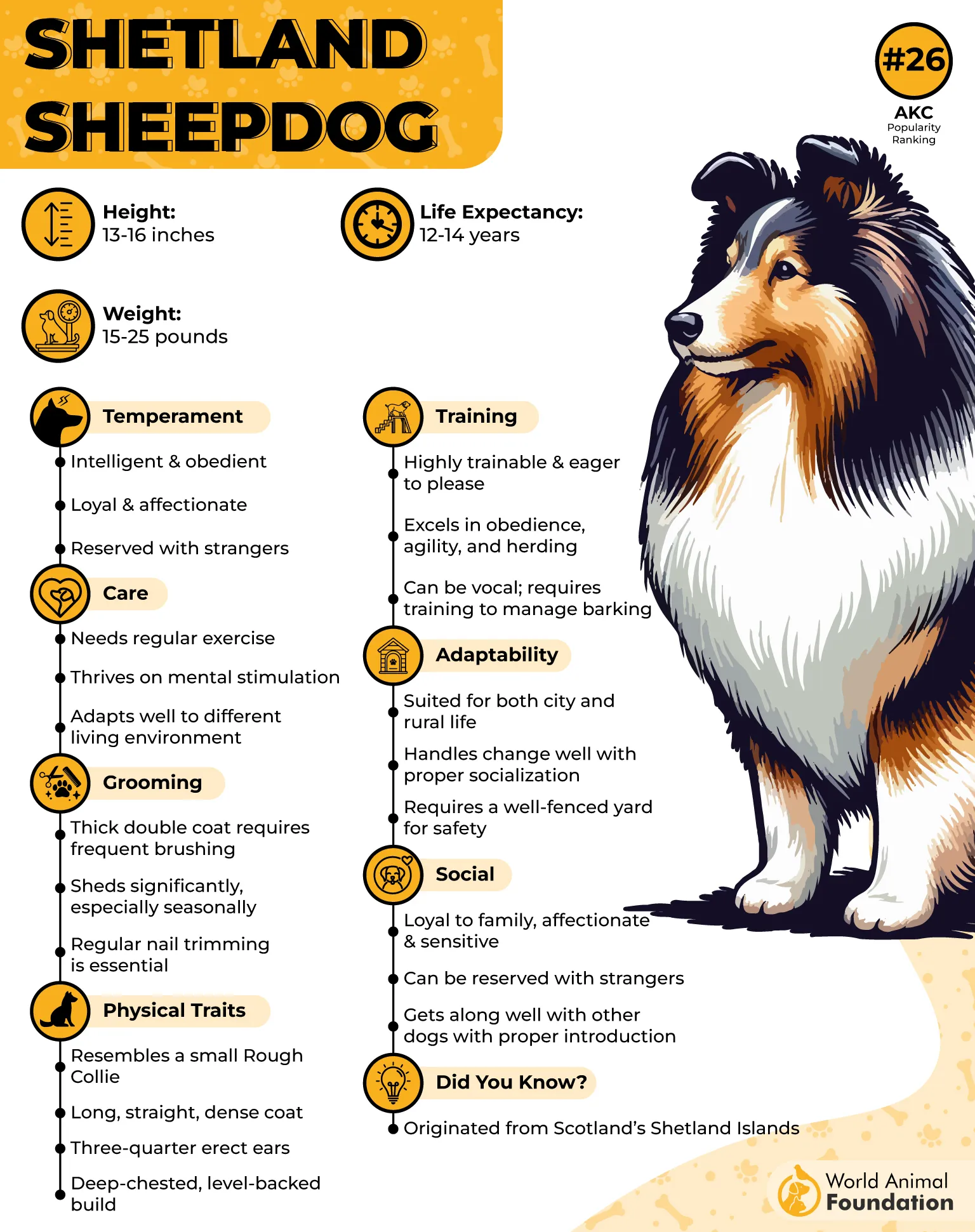
This breed’s natural love for agility sports and outdoor play ensures excellent bone health. Every quick sprint across the yard reinforces strength in joints, tendons, and ligaments.
Dietary Needs for Bone Support:
Nutrient-dense diet to fuel small, active frames
Proper calcium and Vitamin D ratio for bone maintenance
Protein-rich meals to sustain agility and lean muscle mass
Dog Bone Health Watchpoints:
Small breeds can develop patellar luxation if overexerted
Maintain ideal body weight to minimize joint stress
The Shetland Sheepdog combines precision movement, agility, and unwavering energy in a petite frame—proving that well-conditioned bones are as much about purpose as they are about genetics.
FAQs
What natural traits help certain dog breeds maintain bone health?
Breeds with high endurance, balanced muscle mass, and efficient metabolism maintain strong bones naturally. Their genetics help bones provide essential nutrients and support overall health. Bone marrow and collagen production also keep the dog’s body resilient and mobile.
What kind of diet supports natural bone strength in these breeds?
A nutrient-dense dog’s diet rich in healthy fats, organ meats, and raw feeding options keeps bones strong. Raw meaty bones and marrow bones offer essential nutrients and support joint health. Avoid over-supplementation and ensure digestibility for safe, balanced development.
How can exercise routines enhance natural bone strength in dogs?
Regular exercise strengthens bones, aids joint health, and boosts circulation in adult dogs and growing dogs alike. Activities that encourage chewing bones and mobility promote natural development. Proper movement keeps plaque, pain, and arthritis at bay, improving overall health and vitality.
Conclusion
Healthy dog bones are built through balance—smart nutrition, activity, and safe chewing habits. Breeds like the Doberman Pinscher and Belgian Laekenois can thrive when pet owners choose the right bones and dog food.
Raw meaty bones and beef marrow bones support joint health, dental health, and mental stimulation, while cooked bones or turkey bones can be dangerous.
So, opt for safe raw bones, dental chews, and nutrient-rich organ meats to meet your dog’s nutritional needs. Strong bones mean better mobility, cleaner teeth, and a happier, healthier dog—inside and out.


